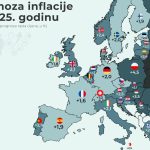Thanks to a network of dedicated volunteers of Code Club Croatia, free coding classes are now available for children aged 7 – 13 at 35 different locations in Croatia.
Thanks to British Embassy supporting Programerko Association’s initiative, Croatia has become the first country in this part of Europe and one of 12 countries in the world to officially join the Code Club community, poslovni.hr reported on May 18.
Young people are leaving the country after graduation and the education system does not put enough emphasis on the advanced technologies and skills that need to be developed early on. Many parents are faced with these problems, so the Programerko Association has decided to take action and do something about it. Thanks to the British Embassy who supported them in Croatia, there is now a Code Club in Croatia. Code Club is a nationwide network of volunteer-led after school coding clubs developed in the UK.
“Resources and knowledge should be invested in the greater good. In Great Britain, we have been doing this for years, and that is why we have decided to become part of this story. It is crucial for kids to learn how programming works, it’s a long-term and smart investment in our society, an investment for a better future,” said British Ambassador Andrew Dalgleish.
As Indra Kubicek, Code Club International Director for International Co-operation, says, their method includes teaching children while they’re having fun so they do not even notice that they are learning.The mission of this NGO is making the Code Club present in all global societies.
“We want to help you achieve our common goal,” says Kubicek.The Code Club volunteer network consists of former professors who are willing to share their knowledge with others. The network already has 15,000 volunteers, and their learning and programming materials have been translated into 27 languages, including Japanese and Hebrew.
Ana Nikolić, Code Club Croatia Coordinator, stated that they partnered with this network last year and 35 clubs have formed in Croatia since, and various lectures and workshops are held in schools, libraries, universities and secondary schools all over the country. In addition to Croatia, Code Club’s partners are also countries such as Brazil, North Korea, Australia and Canada.
“Programming enables children to gain other skills for the future. We can all be part of this story, either as volunteers or offering to provide space necessary for workshops to take place,” Nikolić adds.
Both parents and children join the Club
Fran Zekan, Fifth Gymnasium student, holds workshops for twenty primary school students at the gymnasium he attends. According to Fran, the students are so eager to learn that they sometimes cover the lesson plan intended for three classes in a single class. Connect IT, an association from Slavonski Brod, also teaches coding to 60 primary school students. Mladen Sudar volunteers because he has always wanted to be a teacher and teach children what he knows. The association finances the equipment on their own; they participate in contests and win prizes.
Kristijan Perković, a parent from Primošten, decided to start volunteering because he realised that children need such skills and knowledge, and a third of primary school students joined the workshops. Theirs is the first coding club in Dalmatia.
Find out more here.
See the video from Code Club Croatia presentation below:









